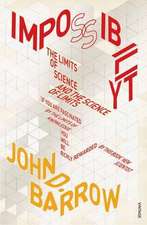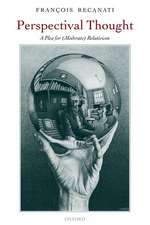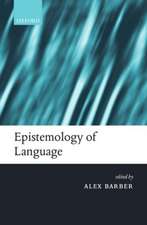Nietzsche’s Nihilism in Walter Benjamin
Autor Mauro Ponzien Limba Engleză Hardback – 5 dec 2016
| Toate formatele și edițiile | Preț | Express |
|---|---|---|
| Paperback (1) | 386.00 lei 6-8 săpt. | |
| Springer International Publishing – 28 iun 2018 | 386.00 lei 6-8 săpt. | |
| Hardback (1) | 391.40 lei 6-8 săpt. | |
| Springer International Publishing – 5 dec 2016 | 391.40 lei 6-8 săpt. |
Preț: 391.40 lei
Nou
Puncte Express: 587
Preț estimativ în valută:
74.90€ • 81.33$ • 62.92£
74.90€ • 81.33$ • 62.92£
Carte tipărită la comandă
Livrare economică 22 aprilie-06 mai
Preluare comenzi: 021 569.72.76
Specificații
ISBN-13: 9783319392660
ISBN-10: 3319392662
Pagini: 246
Ilustrații: XVII, 289 p.
Dimensiuni: 148 x 210 x 21 mm
Greutate: 0.49 kg
Ediția:1st ed. 2017
Editura: Springer International Publishing
Colecția Palgrave Macmillan
Locul publicării:Cham, Switzerland
ISBN-10: 3319392662
Pagini: 246
Ilustrații: XVII, 289 p.
Dimensiuni: 148 x 210 x 21 mm
Greutate: 0.49 kg
Ediția:1st ed. 2017
Editura: Springer International Publishing
Colecția Palgrave Macmillan
Locul publicării:Cham, Switzerland
Cuprins
Introduction.- Chapter 1: Capitalism as Religion.- Chapter 2: Organizing Pessimism.- Chapter 3: Nietzsche: Work’s editions and interpretations.- Chapter 4: The Cry of Marsyas. History as place of permanent catastrophe.- Chapter 5: Hidden Refusal.- Chapter 6: The Dream Space.- Chapter 7: Baudelaire.- Chapter 8: The Order of the Profane.- Select Bibliography.- Index.
Notă biografică
Mauro Ponzi is Full Professor of German Literature at the University of Rome “La Sapienza”, Italy. He is President of the Associazione Italiana Walter Benjamin, and was a member of the Directory Board of the International Walter Benjamin Society in the years 2000 and 2008.
Textul de pe ultima copertă
This book reconstructs the lines of nihilism that Walter Benjamin took from Friedrich Nietzsche that define both his theory of art and the avant-garde, and his approach to political action. It retraces the eccentric route of Benjamin's philosophical discourse in the representation of the modern as a place of “permanent catastrophe”, where he attempts to overcome the Nietzschean nihilism through messianic hope. Using conventions from literary criticism this book explores the many sources of Benjamin's thought, demonstrating that behind the materialism which Benjamin incorporates into his Theses on the Concept of History is hidden Nietzsche's nihilism. Mauro Ponzi analyses how Benjamin’s Arcades Project uses figures such as Baudelaire, Marx, Aragon, Proust and Blanqui as allegories to explain many aspects of modernity. The author argues that Benjamin uses Baudelaire as a paradigm to emphasize the dark side of the modern era, offering us a key to the interpretation of communicative and cultural trends of today.
Caracteristici
Explores Nietzsche's nihilism through literary criticism Offers a systematic approach to Walter Benjamin's Nietzschean nihilism Describes how Benjamin uses Baudelaire as a paradigm to criticize modernity




















